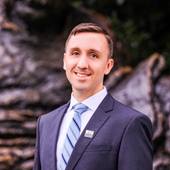Zachary Carey

Zachary Carey
Fellowship Placement: United States House of Representatives
Hometown: Baltimore, MD
Zachary Carey has been serving as a middle school (6-8) science teacher for the Baltimore City Public Schools system for the past 12 years. Currently, Mr. Carey teaches science at the Commodore John Rodgers School, a school serving a diverse community of over 900 students in the Butcher’s Hill neighborhood of East Baltimore and the founding school of the 100% Project school network. Mr. Carey additionally serves as his grade level lead, Commodore’s science lead, the 100% Project’s network science lead, and as a teacher mentor for early-career science teachers. Mr. Carey has managed partnerships with a number of organizations to provide additional programming and resources for his students, including the National Aquarium, Carnegie Institute, Trout in the Classroom, CHILL Foundation, and Johns Hopkins University. Through these connections students have had the opportunity to breed zebrafish, raise terrapins, and among other rich experiences. Beyond his school-based roles, Mr. Carey has delivered gifted programming, both nationally and internationally, as an instructor for Johns Hopkins Center for Talented Youth, and serves as the Teach for America Middle School Science Content Specialist for TFA Baltimore through which he coaches all 1st and 2nd year TFA middle school science teachers. Mr. Carey has a B.S. in Biology from the University of Maryland, Baltimore County, a M.S. in Administration and Supervision from Johns Hopkins University, and is currently pursuing a MPH with a focus on Risks to Adolescent Health from Johns Hopkins University’s School of Public Health. Mr. Carey was selected as a Bloomberg Fellow by Johns Hopkins due to his desire to better empower his school community and is currently working to develop a peer mentoring network to improve outcomes for Commodore Alums as they transition to high school. Mr. Carey has advocated for his students at the district and state levels by providing feedback on curriculum and assessment and delivering testimony on several education related bills. Mr. Carey believes strongly that access to high quality STEM education is critical for educational equity.

